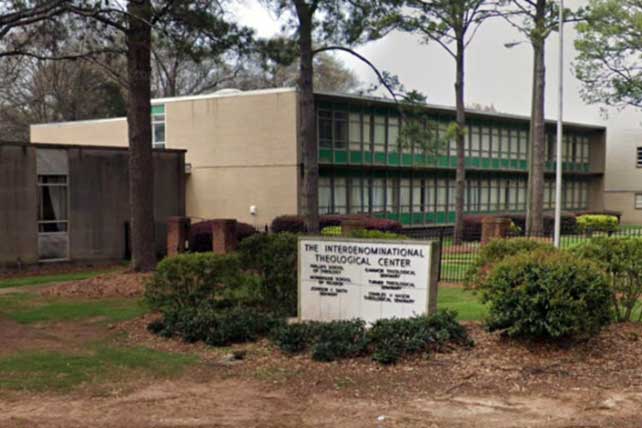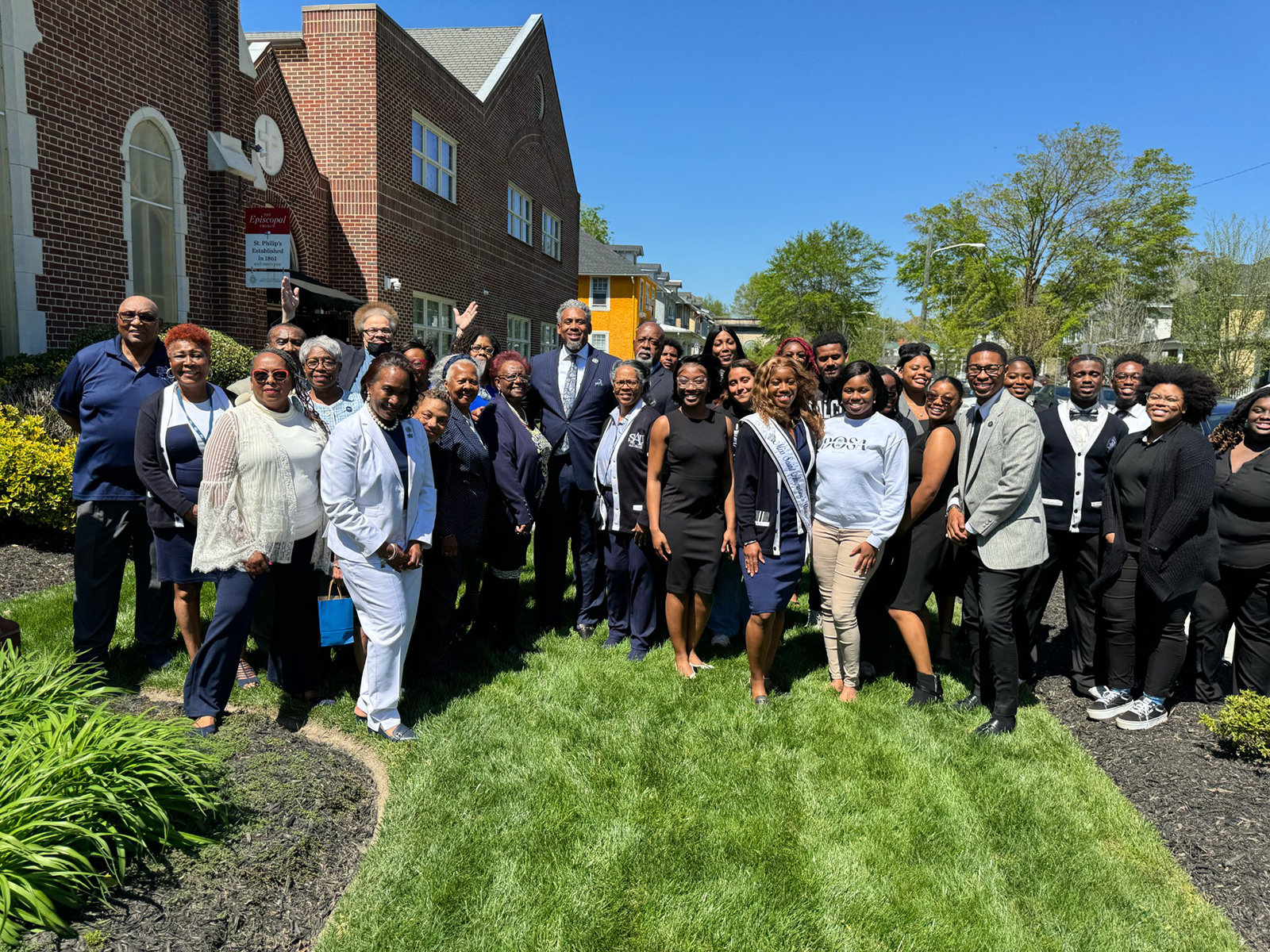(RNS) — Angelique Desiree Carney Howse has many titles: Baptist minister, health care consultant, student advocate.
Come May 11, when she graduates from the Interdenominational Theological Center in Atlanta, she will receive another title: Doctor. “I’m relieved because this time last year I did not know if I was going to be able to finish,” said Howse, the president of ITC’s Student Christian League. “I did not know if the school was going to exist.”
ITC, a consortium of seminaries in Atlanta known for its decades of educating Black ministers, is one of several faith-based historically Black colleges and universities that have been struggling with accreditation and other challenges, even as other HBCUs are seeing increases in enrollment and infusions of donations.
Howse credited the Rev. Maisha Handy, ITC’s interim president since September, with improving the center since it declared “financial exigency” last April, saying it would reduce faculty, suspend programs and restructure operations.
“Where we were this time last year, we’ve made a complete 180,” Howse said. “For sure, interim President Handy has done the impossible, made a way out of no way completely. We were in dire financial straits.” (Handy could not be reached immediately for an interview.)
ITC is not out of the woods. The Southern Association of Colleges and Schools Commission on Colleges, an accrediting agency, has placed the center on probation, citing governance and financial concerns.
The agency has placed Virginia Union University — home of the Samuel DeWitt Proctor School of Theology — on probation for similar reasons, and St. Augustine’s University in North Carolina is awaiting arbitration proceedings after the commission determined its accreditation should be terminated.
“During our appeals process, they did not allow us to show any new evidence,” said Marcus Burgess, interim president of SAU, who took on the role after SACSCOC’s ruling and has worked to bring the school closer to compliance, “rightsizing” the budget and making faculty and staff cuts before Christmas and again earlier this year.
Virginia Union University officials did not respond to a request for comment about its accreditation status. In a Frequently Asked Questions page on its website, the school expressed confidence in addressing the requests of the accrediting body.
RELATED: For Black ‘Nones’ Who Leave Religion, What’s Next?
“The University is continuing to expand the Business Office, strengthening our internal fiscal
infrastructure to accommodate the University’s growth,” said the school, which dates to 1865. “This includes streamlining processes and reducing the time it takes to accomplish transactions.”
Accreditation questions can harm a school’s prospects even as it fights its way to solvency. ITC has seen a significant drop in its enrollment over the last decade. The Association of Theological Schools, ITC’s second accrediting body, which lists the school in good standing, reports it had 448 students in the 2003-04 year, compared with 61 in 2023-24.
SAU, founded in 1867 by the Episcopal Diocese of North Carolina, saw decreases in enrollment, leaving it with about 750 students.
St. Augustine’s University Day is celebrated at St. Philip’s Episcopal Church in Richmond, Va., on April 14, 2024. (Photo courtesy of St. Augustine’s University)
“From fall to spring we probably lost about 200 students,” Burgess said. The school is known for being the childhood home of Sarah and A. Elizabeth Delany, authors of the bestseller “Having Our Say,” whose father, Henry Beard Delany, was one of the first Black bishops consecrated in the Episcopal Church.
On April 1, Burgess shifted the school to remote classes. “I had to cut my costs so I went remote to try to stop the bleeding,” he said. “We’re seeking a little over $5 million or better to help us with the fight to pay for legal fees, to help shore up payrolls, to get things back in order.”
As of mid-April, Burgess said the school had received $400,000 in cash and additional in-kind donations that brought the total to about $1 million.


